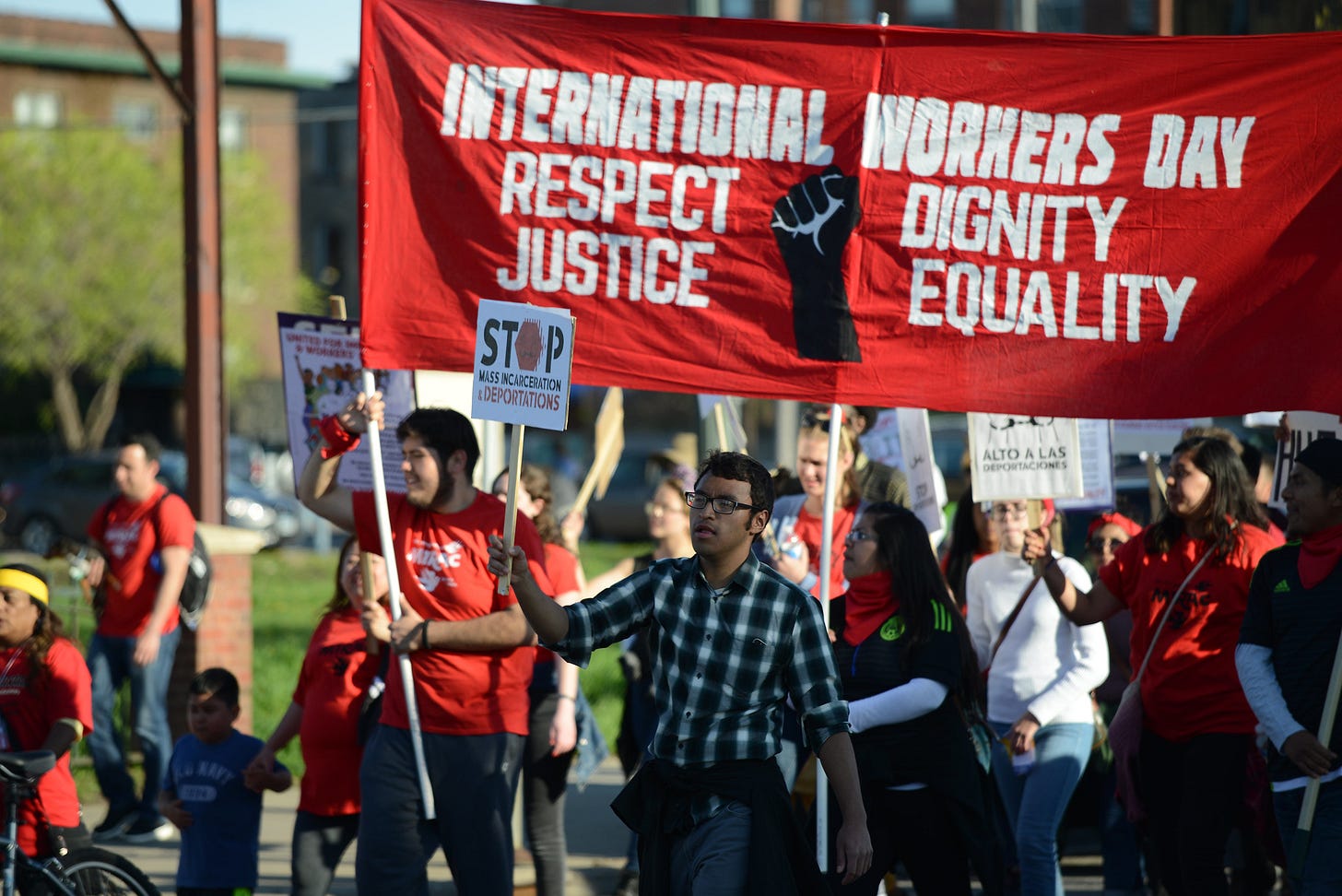Global CEO pay soars 56 times more than worker wages
International Workers’ Day marked by soaring CEO pay and stagnating average wages
From its roots in the 19th-century struggle for an eight-hour workday, the labour movement has a lot to celebrate today. Thanks to the relentless efforts of labour unions, workers have secured rights that many now consider fundamental, like regulated working hours, paid maternity leave and enhanced health and safety standards.
However, as we reported last year, the Commitment to Reducing Inequality (CRI) Index found that labour rights and unionisation laws have regressed in 41% of countries since 2022.
In this week’s Bulletin, we mark International Workers’ Day with a warning about soaring CEO pay, and persistent gender inequalities.
Workers’ Day in Numbers
CEOs vs. Workers. Oxfam analysed the CEO pay (including bonus and stock options) of nearly 2,000 corporations across 35 countries.
Median average CEO pay hit $4.3 million in 2024, a 50% real-term increase from $2.9 million in 2019.
On the other hand, worker pay has barely shifted since before the pandemic, with a real wage growth of just 0.9%.
Bottom line. CEO pay has increased 56 times more than worker wages.
At the top. Ireland and Germany have some of the highest-paid CEOs, earning a (median) average of $6.7 million and $4.7 million a year in 2024 respectively. Median average CEO pay in South Africa was $1.6 million in 2024, while in India, it reached $2 million.
Don’t forget the really big bucks. Billionaires pocketed on average $206 billion in new wealth over the last year. This means that every hour, billionaires pocket more wealth than the average worker earns in an entire year.
How does working a day for free sound? On top of unpaid care responsibilities, many women are also effectively working a day a week for free.
Oxfam’s analysis of the gender pay gap reports of 11,366 corporations across 82 countries finds that the gender pay gap in these corporations narrowed only slightly from 27% to 22% between 2022 and 2023.
Corporations in Japan and South Korea reported some of the highest average gender pay gaps in 2023 (around 40%). The average gap in Latin America was 36% in 2023, up from 34% the previous year. Corporations in Canada, Denmark, Ireland, and the UK reported average pay gaps of 16%.
Some of this gap is likely explained by the lack of female leadership. We looked at the gender of the CEOs of 45,501 corporations reporting revenues exceeding $10 million across 168 countries. Just 7% of these companies have a female CEO.
Enjoy your day off. If you’re fortunate to live in a country where Workers’ Day is a public holiday (sorry Canada and the US), enjoy! But remember, we’re in the middle of a billionaire coup against democracy and the working class. Hard-won rights could swiftly be taken away in the name of corporate and billionaire profit.
The Oxfam press release is here.
Something to read/listen to
Listen to the latest Equals podcast with Jordi, an economist at Positive Money, who talks about how central bank policies, like hiking interest rates, affect inequality.
Read Rune Stahl’s excellent article in the Jacobin about how going back to the “good old days” of free trade is no solution.
Read this Politico profile about ‘The billionaire who wants to Make France Great Again’
Read Tax Justice Network’s article about Pope Francis’ work as an ally for tax justice.
Enjoy this thread of Workers’ Day posters from around the world.



